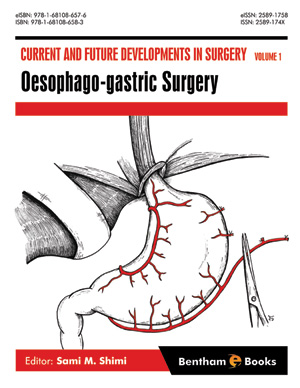Abstract
Major Upper Gastrointestinal (UGI) surgery encompasses a wide range of potential surgical procedures, many of which pose substantial challenges to the anaesthetist caring for the patient in the peri-operative period. Pre-anaesthetic assessment and optimisation of the patient are critical. The objectives of anaesthesia are to render the patient unaware of the surgical stimulus, to provide favourable intraoperative conditions for surgery, and to improve patient experience and outcome, particularly in cardiorespiratory function and post-operative analgesia. The specific points to consider in oesophago-gastric surgery include the position of incisions, the duration of surgery, the multi-site nature of the operations and the premorbid condition of the patients considered for surgery. Whilst there is no substitute for experience and frequent exposure to these procedures, there are a number of specific anaesthetic issues which merit expert consideration. This chapter will explore a number of facets of patient care: from pre-operative assessment to anaesthetic technique and finally, post-operative care. Due to the high propensity of post-operative complications, particularly infections, which contribute to additional morbidity specific to oesophago-gastric surgery; a section is included on infection and antibiotic prophylaxis. In addition, multi-modal analgesia will be considered as the site of surgery for many of these patients can impact on post-operative respiration and can contribute to post-operative respiratory infections.
Keywords: Anaesthesia, Analgesia, Anaesthetic techniques, Pre-operative assessment, Cardio-pulmonary reserve testing, Premedication, Monitoring, Extubation, DVT prophylaxis, Infection and anti-microbials.
















